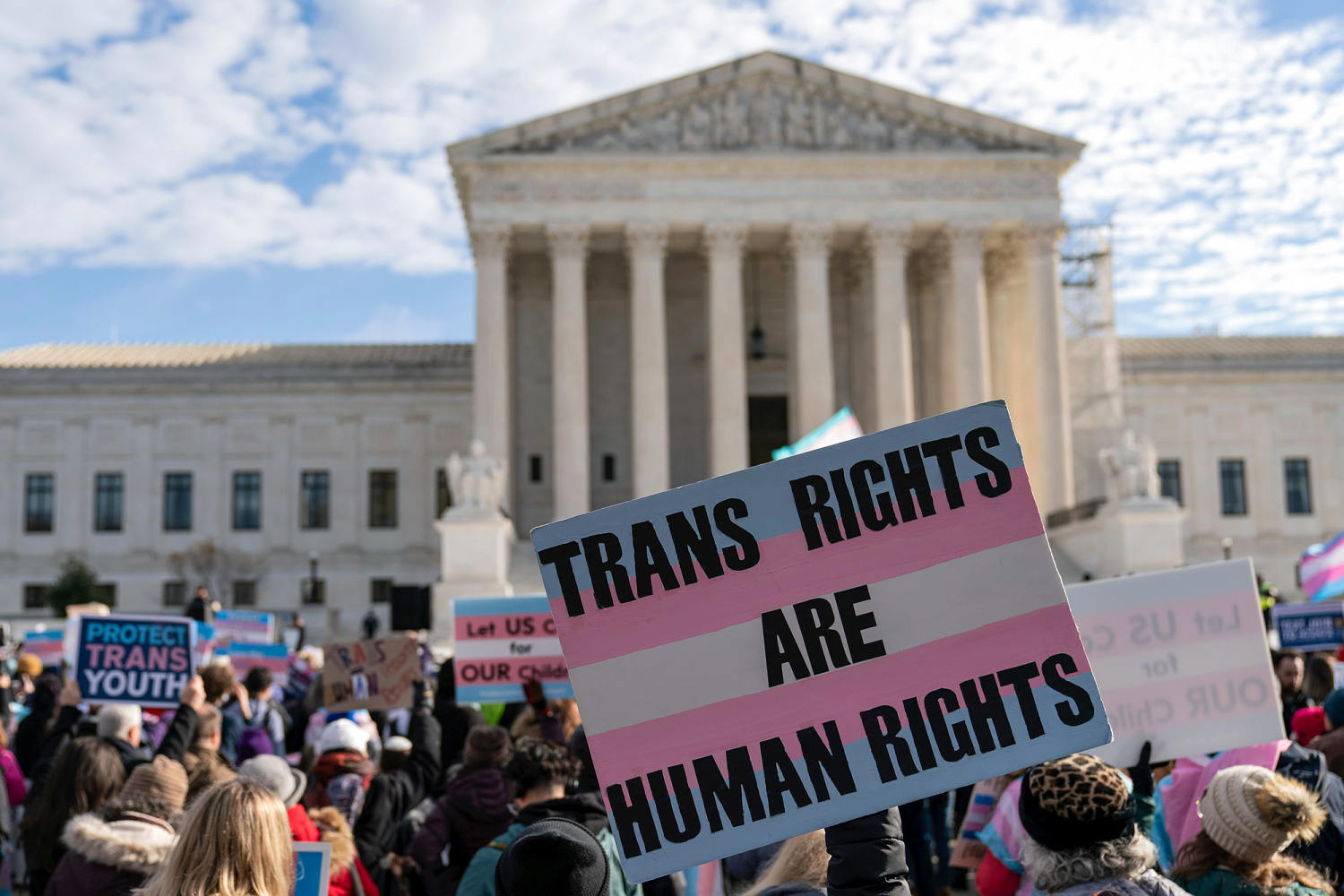
The 11th U.S. Circuit Court of Appeals ruled last week that a trans teacher in Florida has no right to refer to herself with the gendered honorific “Ms.” or ask to be referred to with the pronouns she/her under what critics have called Florida’s “Don’t Say Gay” law.
The trans algebra teacher, Katie Wood, sued her employer, the Hillsborough County School Board, in 2023 soon after Florida’s anti-LGBTQ law was enacted. A lower court found that the law likely infringes on her First Amendment free speech rights and granted a preliminary injunction. However, the conservative-leaning appeals court overruled the lower court, ruling that Wood has not shown that the law violates her free speech rights as a citizen.
If a conservative teacher is allowed to misgender their students as a matter of political speech, so, too, should a trans teacher be allowed to gender herself correctly.
According to the law, teachers are explicitly forbidden from providing students with their honorifics or pronouns if they do not correspond with the words most closely associated with their assigned sexes at birth. Josh Block, senior counsel with the ACLU LGBT Project, explained to MSNBC that there are different levels of protected speech in certain government-sector professions, including teachers. “When you work for the government, your speech as a public employee is subject to different rules in your speech outside that context,” he said in an interview.
According to Block, a government employee’s free speech rights may be curtailed when it the topic directly related to their on-the-job duties. For example, if a teacher writes a letter to the editor expressing support for a candidate and then is retaliated against by their employer, the teacher’s free speech rights offer some recourse. But, Block adds, “if you say something as part of your job duties, there was a little carveout there for [that].”
The Supreme Court most recently ruled upon this doctrine in Kennedy v. Bremerton, the 2021 decision that ruled a football coach was allowed to invite his team to take part in goal-line prayers after football games, because it was not essential to his duties as an educator.
This same tension is at the heart of Wood’s case, but conservatives are suddenly singing a different tune.
How much control can the state of Florida have over how a trans teacher refers to themselves? Are a teacher’s honorific and pronouns actually part of the job of being a teacher? Certainly those things are used constantly within a classroom, but are they essential to the job of teaching?
Block notes that other conservative-leaning courts have begun ruling that teachers have an inalienable free speech right to misgender their trans students, because conservatives have claimed that being required to respect a student’s pronouns would essentially be the state’s forcing teachers to express a political and/or religious belief that they do not hold.
But the same should be the case for a trans teacher referring to themselves. If a conservative teacher is allowed to misgender their students as a matter of political speech, so, too, should a trans teacher be allowed to gender herself correctly. But conservatives do not really care about legal consistency — they want to have their cake and eat it, too.
In order to preserve your own free speech, you ought to be defending the rights of trans people.
American conservatives seem to think they have won the cultural battle over trans rights in the wake of United States v. Skrmetti, which upheld state laws banning gender-affirming care for minors. As a trans journalist who covers trans issues for a living, it looks to me as though many conservatives now see very few obstacles on their path toward the utter destruction of public trans life, enforced through government action.
At the core of their agenda is denying the identities of trans people; that is why a number of Republican-dominated states have taken steps to restrict changing genders on legal documents and the Trump administration hurried to stop trans people from changing the gender marker on U.S. passports.
The next step is stopping trans teachers from gendering themselves correctly through Florida-style “Don’t Say Gay” laws. Further restrictions on trans people seem highly likely to follow. They are trying to use the government to force a cultural conversion on trans rights on the American public, the Constitution be damned. And if they succeed, if they can deny our right to call ourselves things we feel deeply within our souls as trans people, then they can come for your speech next in any way they see fit.
This is why Americans who are not of the progressive left — or particularly concerned about trans rights — need to understand that this kind of government reach can and will come for you next. In order to preserve your own free speech, you ought to be defending the rights of trans people to call themselves who they are.
